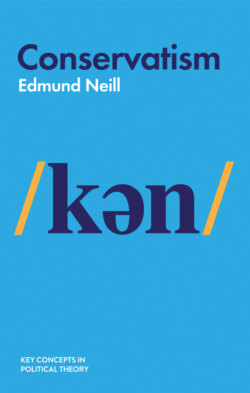Читать книгу Conservatism - Edmund Neill - Страница 8
Defining Conservatism: One Key Concept?
ОглавлениеIn view of such difficulties, clearly a different approach is necessary in order to define and explore conservatism successfully. One strategy pursued by some scholars is to try to isolate a particular concept that is especially fundamental to conservatism. Thus Peter Dorey, in his book British Conservatism: The Politics and Philosophy of Inequality (2011), sought to identify conservatism with a fundamental commitment to upholding inequality, while Noel O’Sullivan, in his 1976 study Conservatism, focused on the ‘imperfection’ of human nature – and hence a commitment to limited government – as a key to understanding conservative arguments (Dorey 2011; O’Sullivan 1976: 9–31). But although both these books are perceptive and insightful, they are in danger of ignoring or excluding types of conservatism (or facets of conservative arguments) that do not fit well with their approach. We have already noted that conservatives differ over the degree to which they uphold inequality, and even if it is reasonable to claim that most conservatives take a more negative view of human nature than most liberals and socialists, it seems implausible to argue that such a view is always the key to understanding their arguments, let alone that this necessarily implies a commitment to more limited government. Although they certainly agreed that human nature was imperfect, paternalist conservatives in post-war Britain, like Harold Macmillan, tended nevertheless to stress the positive good that government could do in preventing unemployment and boosting economic growth; likewise, late nineteenth-century French conservative nationalists, such as Maurice Barrès, certainly stressed the positive role the state could play, even if they did not have an entirely positive view of human nature (Green 2002: 171–4; Jennings 2011: 456). At best, therefore, such an ‘exclusionary’ approach can be useful if we are seeking to produce normative arguments in favour of a certain type of conservatism. But as a more analytic, descriptive approach, which aims to delineate the richness and complexity of the tradition of conservative thought, it leaves much to be desired.
